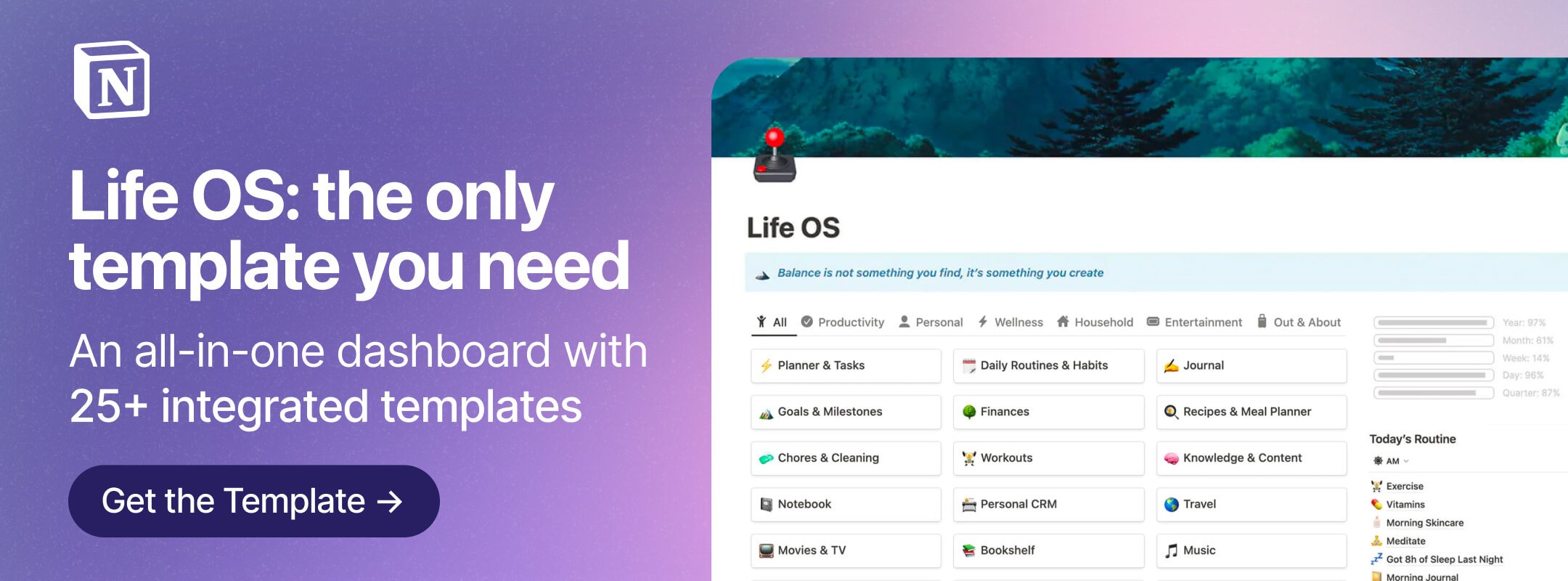Search the internet for “Notion is slow” and you’ll find dozens of complaints about page speed and tricks for making Notion faster. Feeling the lag and not sure what you can do to speed up your workspace? Don’t fret! Scroll on for some tried and tested ways to speed up Notion so you can get back into your flow state.
Looking for more productivity tips and tools? Subscribe to The Flow — our quick, snappy, value-packed focus and recharge newsletter. Also, don’t miss our several other Notion template round-ups and guides!
Table of Contents
Get the all-in-one Life OS template, the only Notion template you’ll ever need — with over 25 integrated templates built in.
Factors that Make Notion Slow
Before we delve into our tips for making Notion faster, we wanted to cover some of the factors that affect page load speed. So before you go blaming Notion for being slow, check some of these settings first!
Your Device and Operating System
Notion pages will load at different speeds depending on the device you’re using.
According to some Notion users, Notion tends to be slower on Windows than macOS. Similarly, Notion may load more quickly on some browsers than others.
If you’re experiencing some lag, here are a few things you can try:
- Check your device’s memory usage.
- Quit and relaunch your browser, or try using Notion on a different browser.
- Check to see if there’s an update for your operating system.
Issues on Notion’s Side
Sometimes it’s not you, it’s them! Check Notion’s status page here and see if Notion is down, or if there are any performance issues with the platform itself.
Your Internet Connection
Because Notion doesn’t offer a true offline mode (yet), your internet connection directly affects your page load speed. If you’re having trouble with Notion being slow, try testing out other sites to see if your internet speed could be causing the lag.
Pro Tip: To test your internet speed, use Google’s Internet Speed Test. Just type “test internet speed” into Google and click the blue button that says “Run Speed Test”. Google will then test your upload and download speeds and let you know whether your internet connection is slow or fast. You can also use sites like speedtest.net!
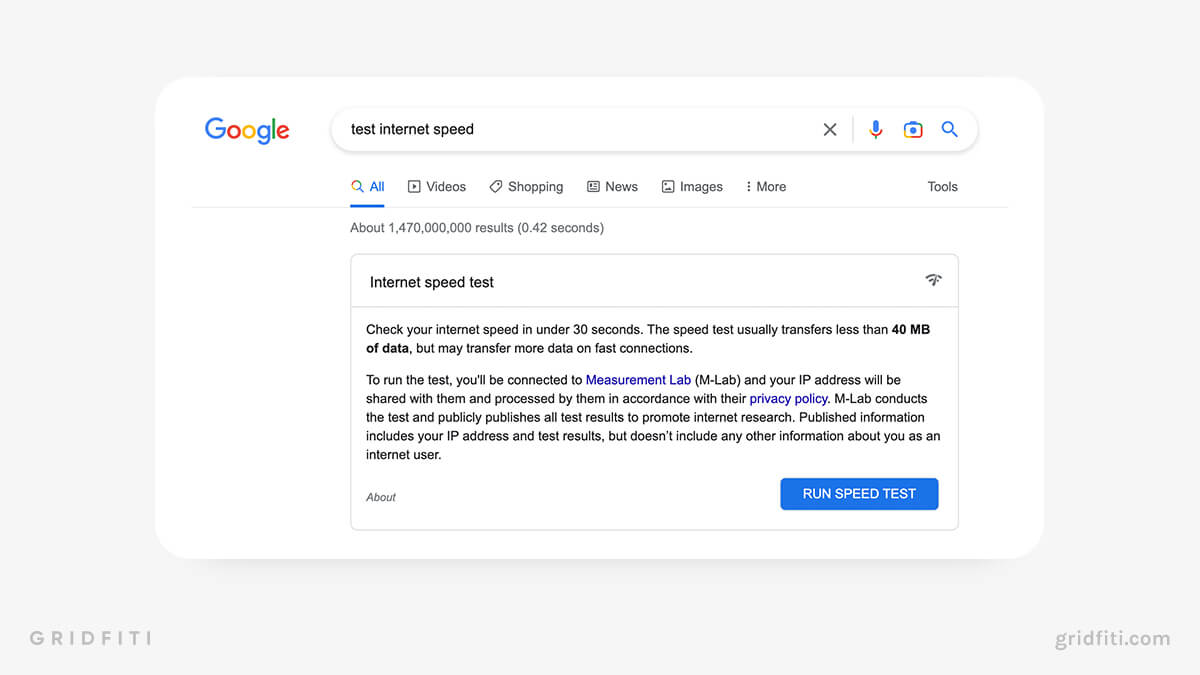
Open Apps and Processes
Notion will likely be slow if you have a ton of programs, apps, browser tabs, and background processes running.
So to make Notion run faster, check your Activity Monitor (macOS) or Task Manager (Windows) and see what programs you can close. Quitting a program or process is better than simply closing it.
Pro Tip: To see which processes and apps are eating up the most memory, sort your programs by “Memory”.
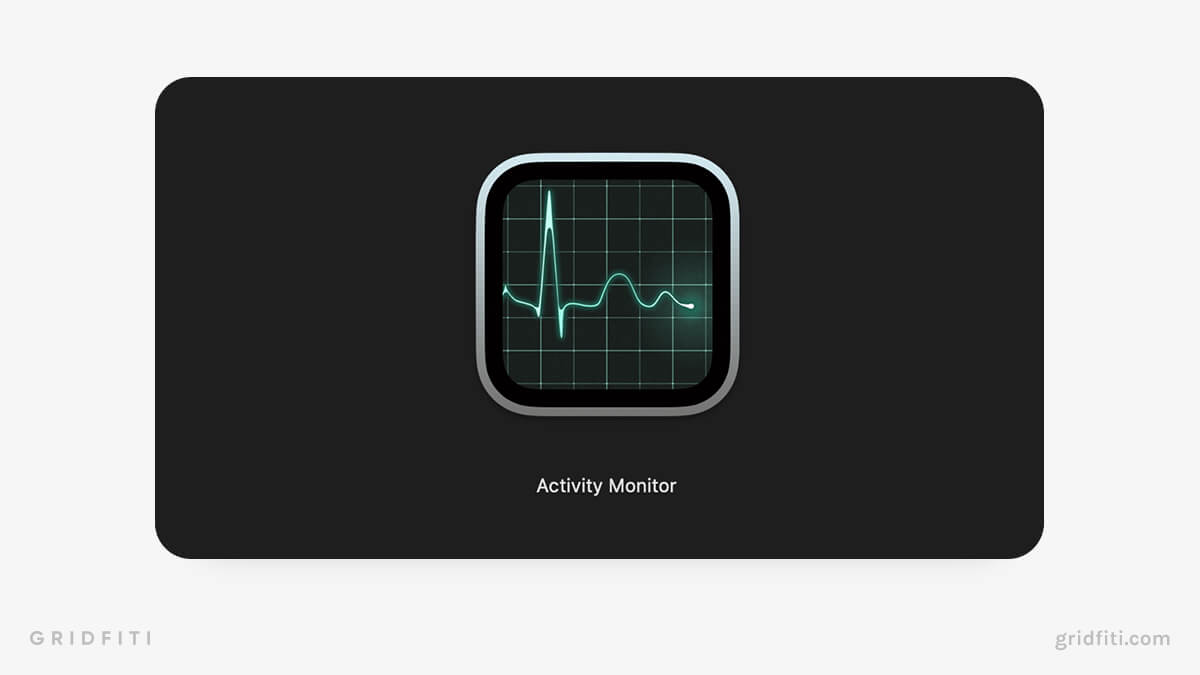
Amount of Content on the Page
The more content you have in a Notion page, the slower it’s likely to load. The load speed may also vary depending on the types of blocks you’ve added to a page. For example, pages with mostly Text blocks will typically load more quickly than a page with several linked databases, widgets, embeds, and images (especially GIFs).
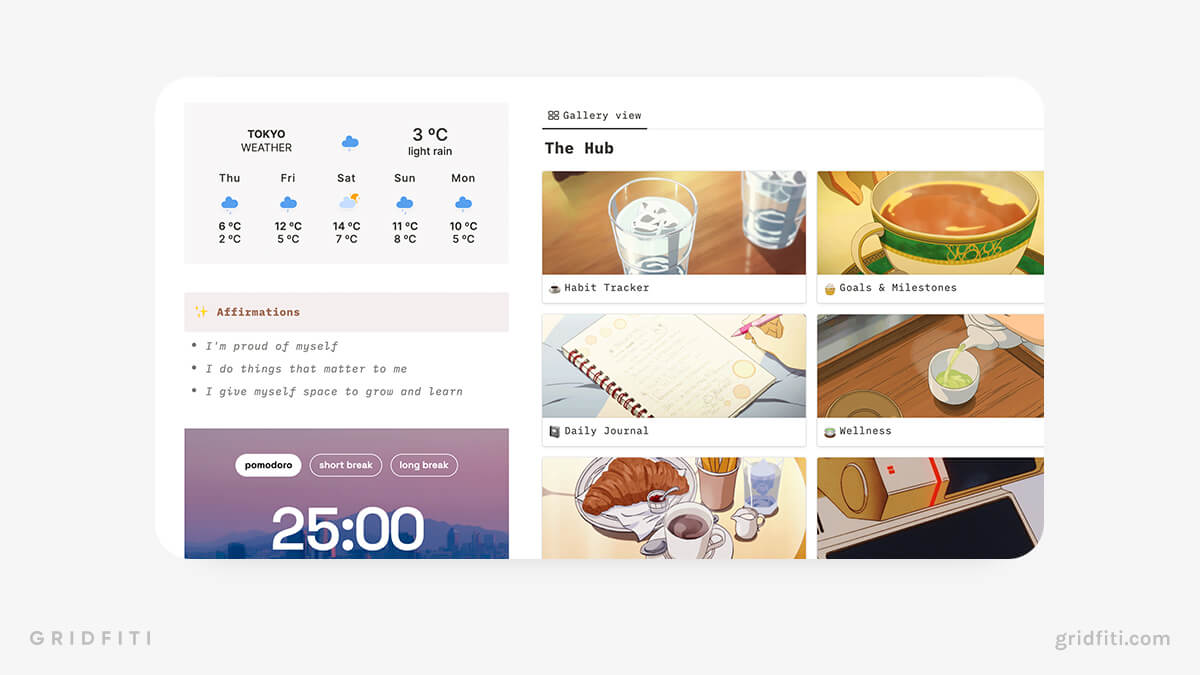
How to Make Notion Faster
Now that we’ve covered some things that affect Notion’s speed, let’s take a look at some things you can do to make Notion faster!
Use the Desktop App
Is Notion faster on the app or your browser? The internet is divided on the answer to this question. Some users report the browser version is faster, while others swear by the desktop app.
But according to Notion’s official Twitter account, the desktop version is designed to be 50% faster than web. So if you’re using the browser version, try out the desktop app for better performance.
To learn more about Notion’s app vs. web version, don’t miss our full post on Notion Desktop App vs. Web.
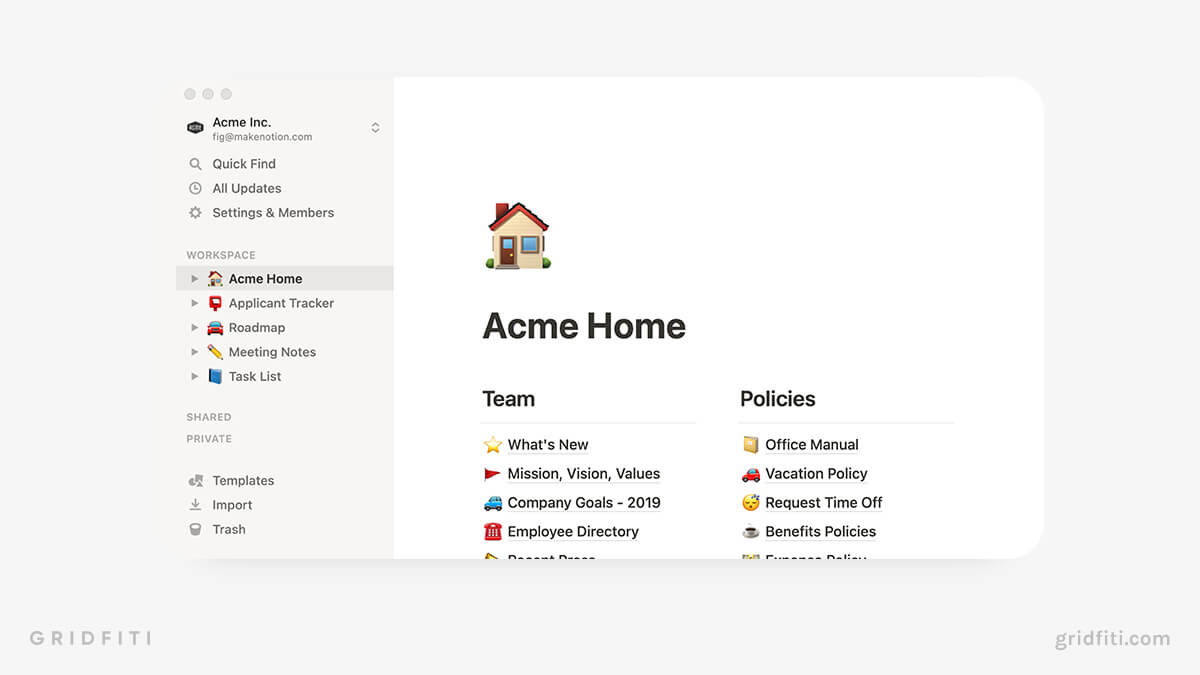
Compress All Your Images
The file sizes of the images you use in Notion affect speed more than you might think. Instead of embedding images from a URL, we recommend downloading all your images, compressing them, and reuploading them. This applies to:
- page covers
- custom page icons
- cover images in Gallery views
- Image blocks
Compressing your images will reduce their file size without compromising quality. Once the images load, they’ll be cached in your app or browser, which will mean quicker loading times when you open the page in the future.
We recommend using a tool like TinyPNG to compress your image files. Alternatively, if you’re using a Mac, you can use the Preview app to resize your images.
You may not be able to do this for every image you use in Notion, but try to minimize your use of images embedded via a URL.
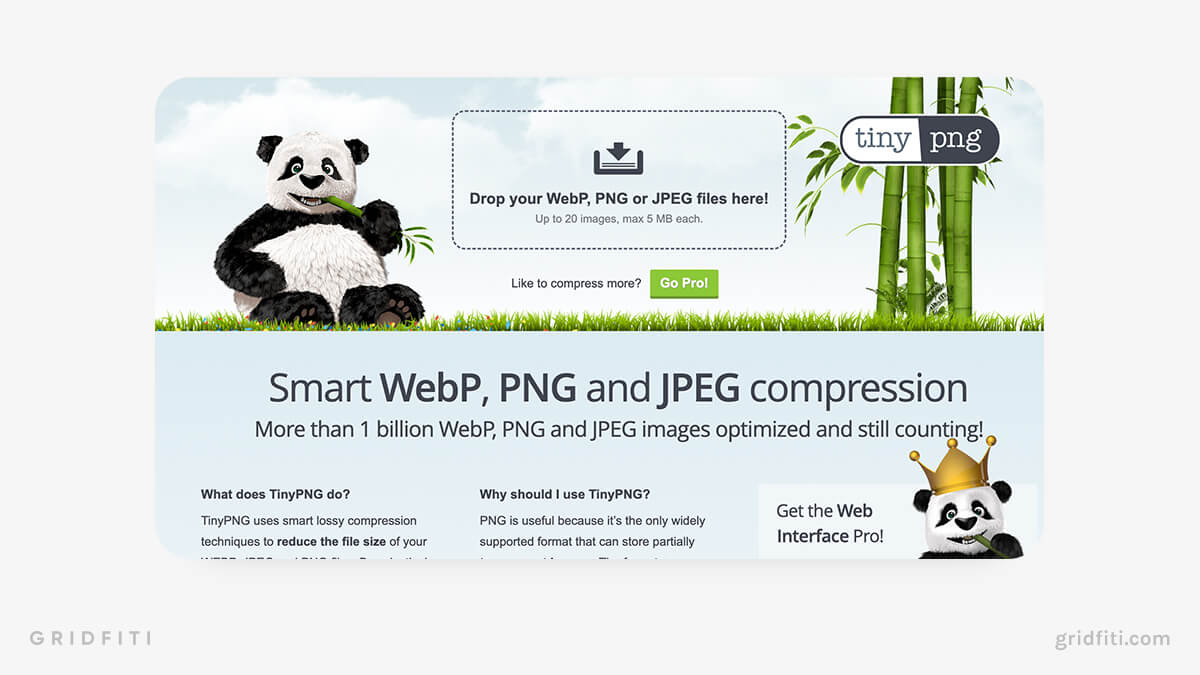
Avoid Using Unsplash Photos as Page Covers
Unsplash is a royalty-free stock photo site that integrates with Notion. When you choose a cover image, you have the option to search Unsplash’s library right from Notion.
While this is a convenient way to choose a cover image, it can also make Notion slow. Many photographers upload high-resolution images to Unsplash — we’re talking 5,000 pixels by 3,000 pixels for some images. (That’s roughly 3 times the size of a standard desktop wallpaper.)
The result is a huge image file size. The file size of this original Unsplash image, for example, is 2.2 MB. May not sound like much, but it’s pretty hefty for just one photo.
With the Unsplash search option, Notion doesn’t let you choose which file size or resolution you’d like to use for your cover. Presumably, it loads the original file size every time. And because it’s an embed, Notion has to make frequent data requests to Unsplash via the internet. In plain English, this means more lag and slower loading times for pages with Unsplash cover images.
Instead of using the in-app Unsplash library, here’s what to do:
- Head over to Unsplash
- Download your desired image
- Resize the image (Notion cover photo size here)
- Upload it as your page’s cover in Notion!
Alternatively, you can download the full-sized image and compress it using a tool like TinyPNG to reduce the file size with minimal compromise in image quality.
Looking for more Notion cover photo options? Check out our full round-up on Notion cover photo packs and ideas!
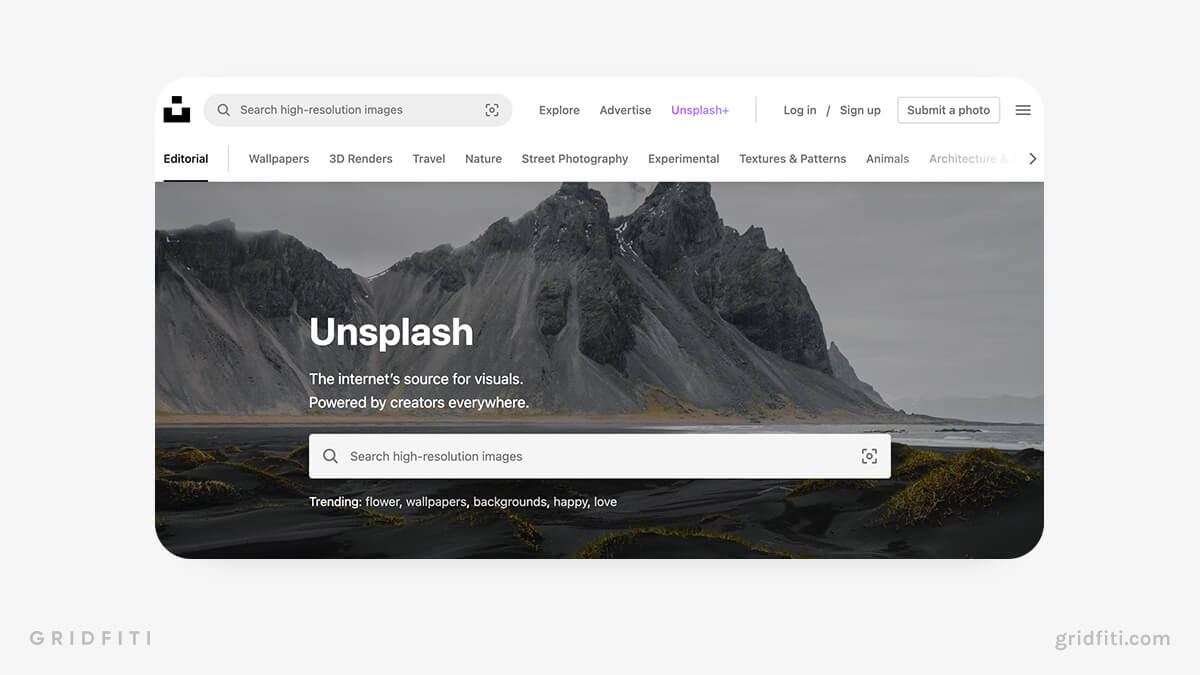
Avoid Adding Too Many Linked Databases to a Page
Notion’s databases are a productivity gamechanger. The ability to display a database anywhere in Notion using a Linked Database block is especially handy.
But too much of a good thing can be a bad thing. Adding too many Linked Database blocks to a page can cause Notion to lag — we’re speaking from experience here!
The impact on speed will vary based on several factors, including:
- the number of Linked Databases added to a page
- the load limit of each database
- the number of properties shown
- the layout of the Linked Database (Tables tend to load quicker than Galleries, for example)
- whether the Linked Databases are arranged in columns
If your page is lagging, try adjusting or deleting some of the Linked Database blocks. Or, you can place them within a Toggle block — which leads to our next tip.
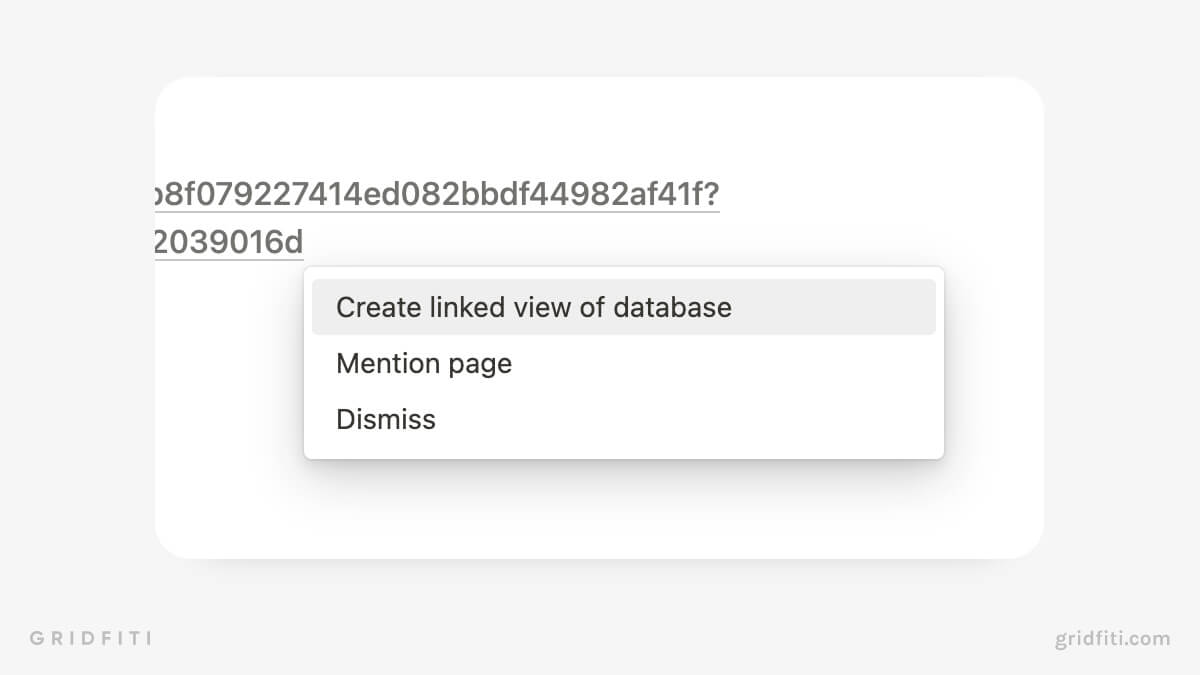
Use Toggles
Toggles are a great way to keep all your content in Notion nice and tidy. Nest blocks within a Toggle, and you can easily show or hide them all by clicking the little black triangle to the left of the block. This reduces page load speed while also letting you add as much content as you’d like. You can create toggle blocks, toggle headings, and toggle lists!
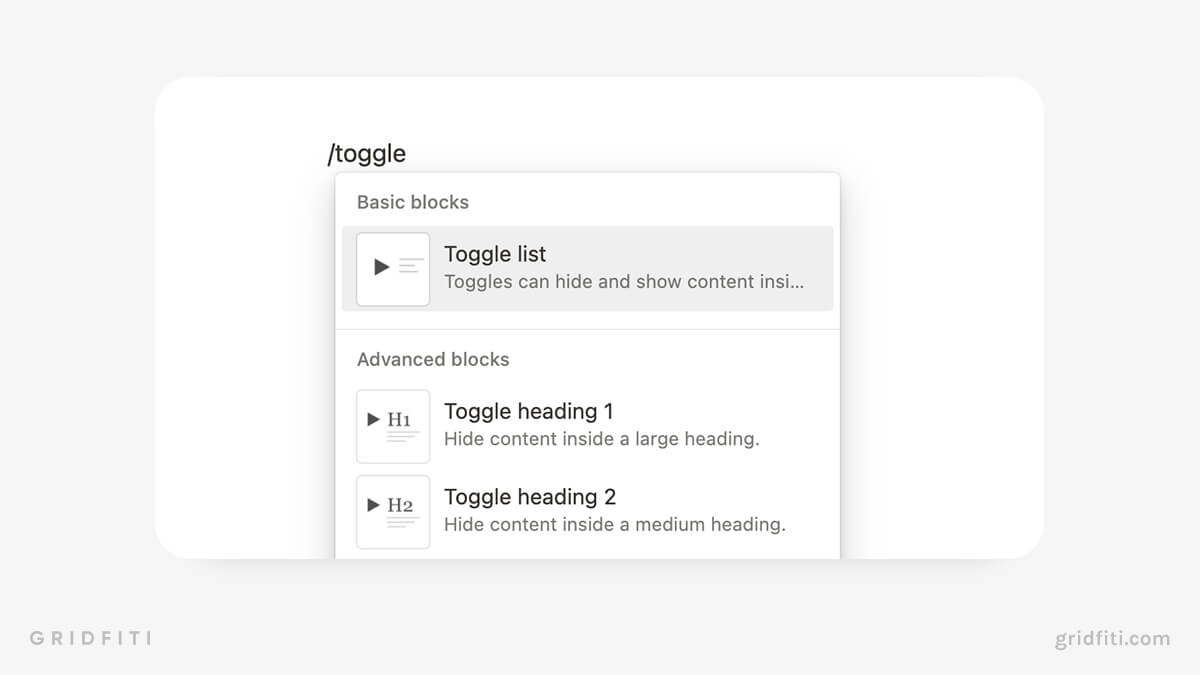
Clear Your Cache
Whether you’re using the Notion desktop app or accessing Notion via your browser, clearing your cache is a great way to speed up Notion.
To clear your browser cache, open your browser settings and search for “cache”. (Be aware that clearing your cache might log you out of some sites.)
How to clear your cache on the macOS Notion desktop app:
- Open Notion.
- Click “Notion” in the top left corner of the Mac menu bar.
- Click “Reset & Erase All Local Data”.
How to clear your cache on the Windows Notion desktop app:
- Quit Notion.
- Open the Run app by searching the Start menu. (Alternatively, use the Windows key + R shortcut to launch it.)
- Enter %AppData% in the text box. This will open your App Data folder.*
- In File Explorer, open the Roaming folder.
- Delete the Notion folder from your Roaming folder.
*The AppData folder may be hidden. If you can’t find it, try showing hidden folders in Windows.
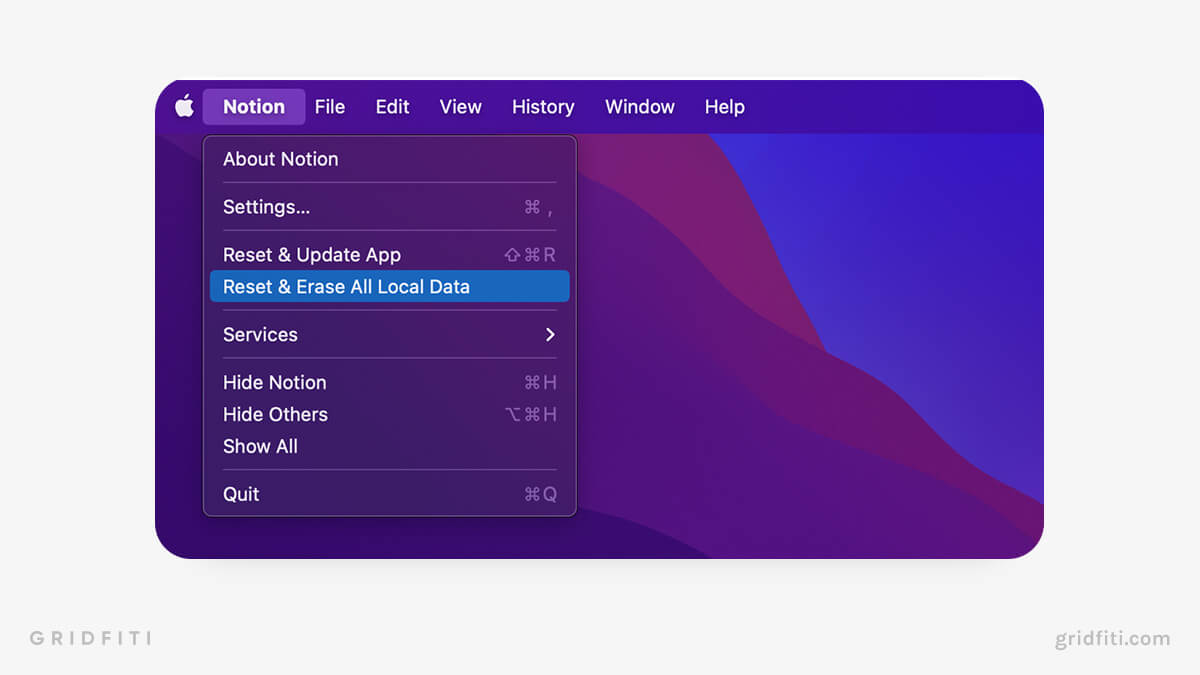
Use Filters and Groups in Linked Databases
Filters and Groups can be a great way to show, hide, or group pages housed in a Notion database.
Filters can speed up Notion by reducing the number of pages Notion needs to load in a database view. Similarly, Groups can make Notion faster by grouping database pages toggle-style.
If you’ve built large databases in Notion, you’re probably already using Filters and Groups. Experiment with your setup to see how else you can speed up your database loading times.
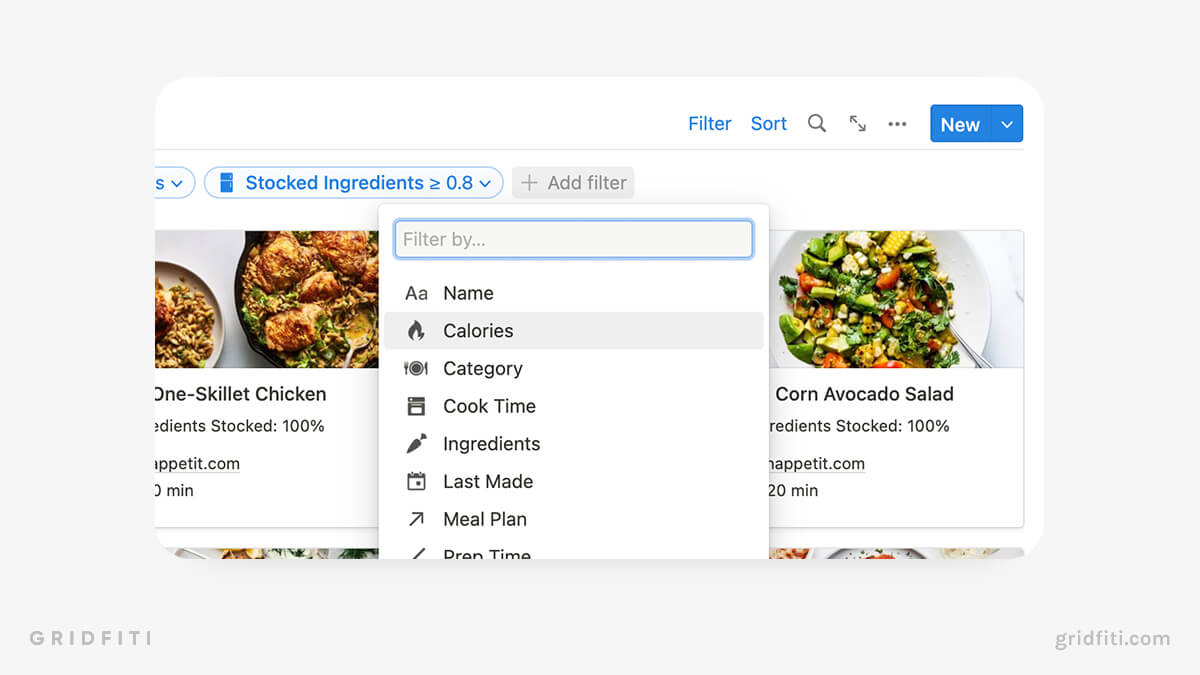
Adjust the Load Limit for Databases
All databases in Notion let you set a load limit, which is the number of pages Notion will load at one time. Loading 100 pages at a time will take a lot longer than loading just 10 pages. Reducing your load limit can make Notion faster, while also helping you stay focused and on task.
To adjust the load limit:
- Click the menu icon (⋯) in the top right corner of your database, next to the blue “New” button.
- Click “Load limit”.
- Choose the new load limit (10 pages, 25 pages, 50 pages, or 100 pages).
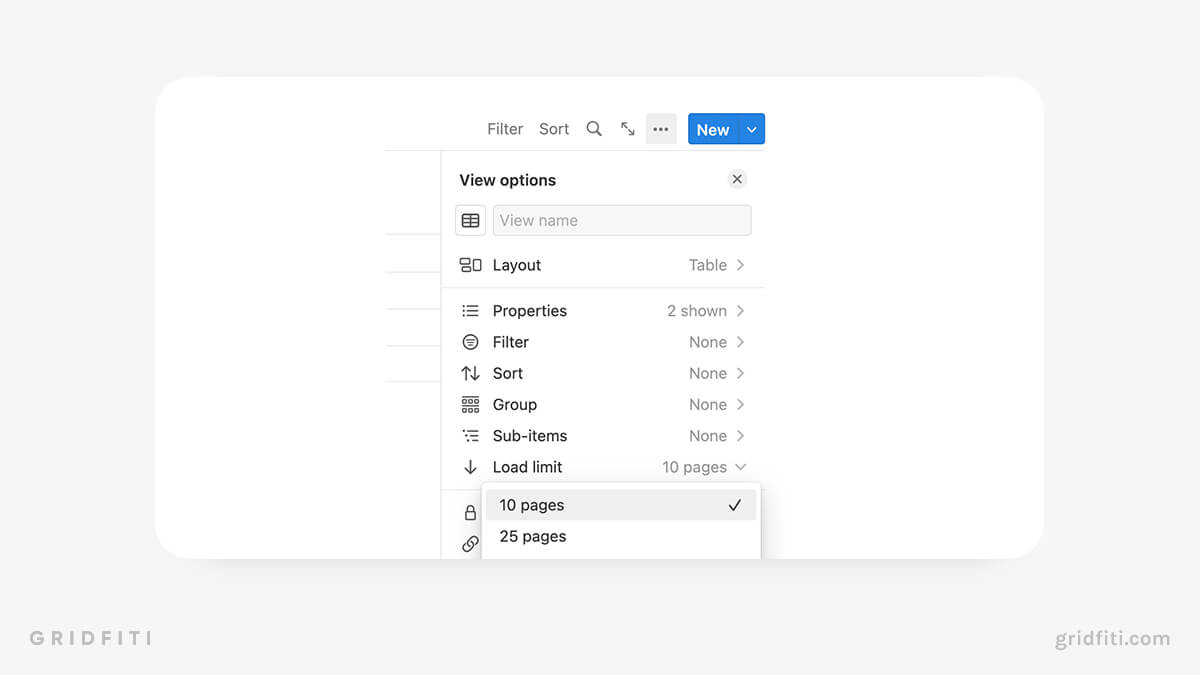
Rethink Your Widgets
Widgets are a cool way to spruce up your workspace or make your Notion more aesthetic. But widgets are web-based, which means that Notion will make frequent data requests to the widget provider to load and display them.
If your page contains a lot of embedded widgets, try reducing the number of embeds or nesting them within a Toggle block. Some widgets will also load more slowly than others — for example, a simple counter widget or quote widget likely won’t take as long to load as a weather widget.
Related: The Best Aesthetic and Minimal Notion Widgets
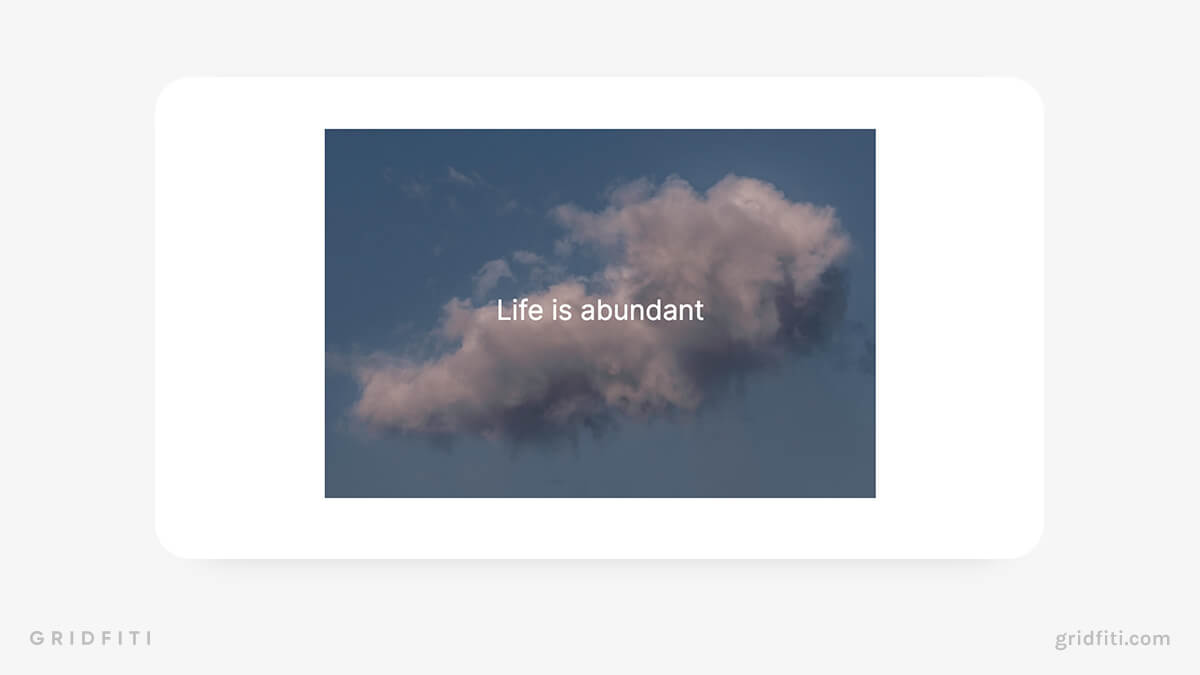
Avoid Using Extensions and Third-Party Apps
If you’re a Notion power user, you’ve likely heard of some of the extensions that modify the look and feel of Notion, like:
- Notion Enhancer
- Notion Extensions
- NotionX
These third-party apps and extensions can do everything from adding charts to completely overhauling Notion’s appearance.
While these add-ons can take your Notion setup to the next level, they can also make Notion slow, especially if you’ve installed multiple extensions. Some apps, like Notion Enhancer, also include additional extensions that can be toggled on or off from within the app.
To speed up your Notion, try uninstalling some of these third-party add-ons or reducing the number of modifications you have toggled on.
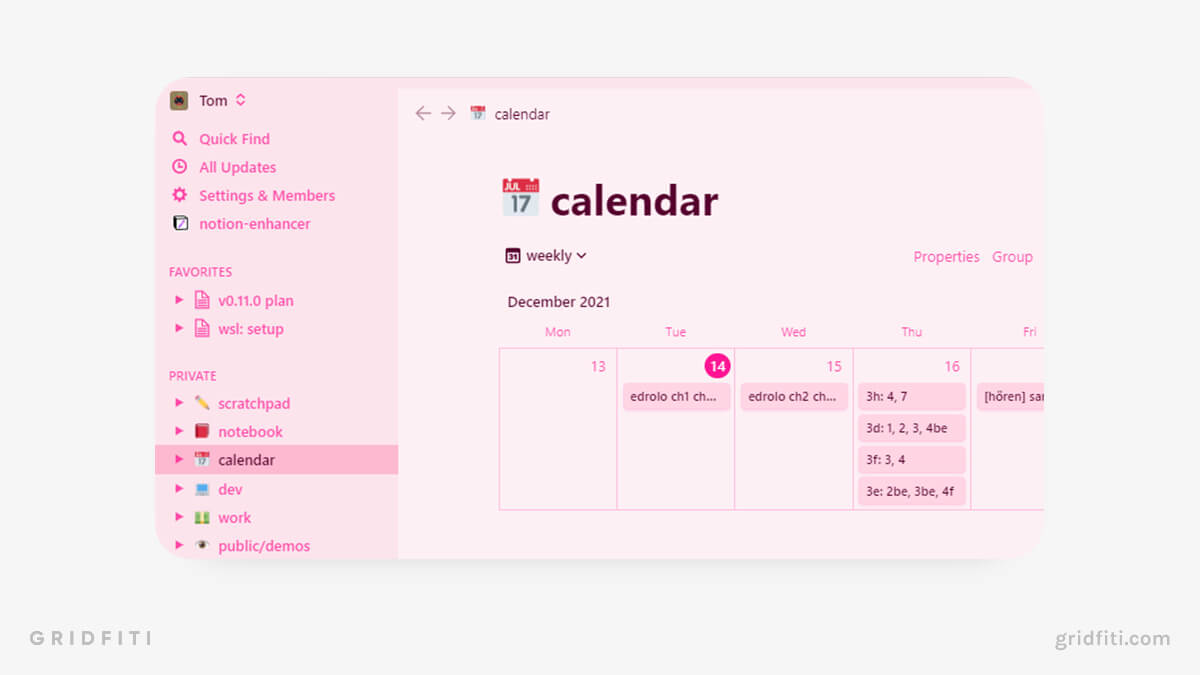
Delete Old and Unused Pages
Although you can create an unlimited number of pages in Notion, the more pages you have, the slower Notion might be. From time to time, review your entire Notion workspace and delete any pages you don’t use. To delete a page, click the menu icon (⋯) either in the sidebar or top right of the page, and select ‘Delete’.
Deleted pages are automatically stored in your Trash folder. To permanently delete pages, click “Trash” at the bottom of your Notion sidebar, then click the trash can icon to the right of the page you’d like to delete.
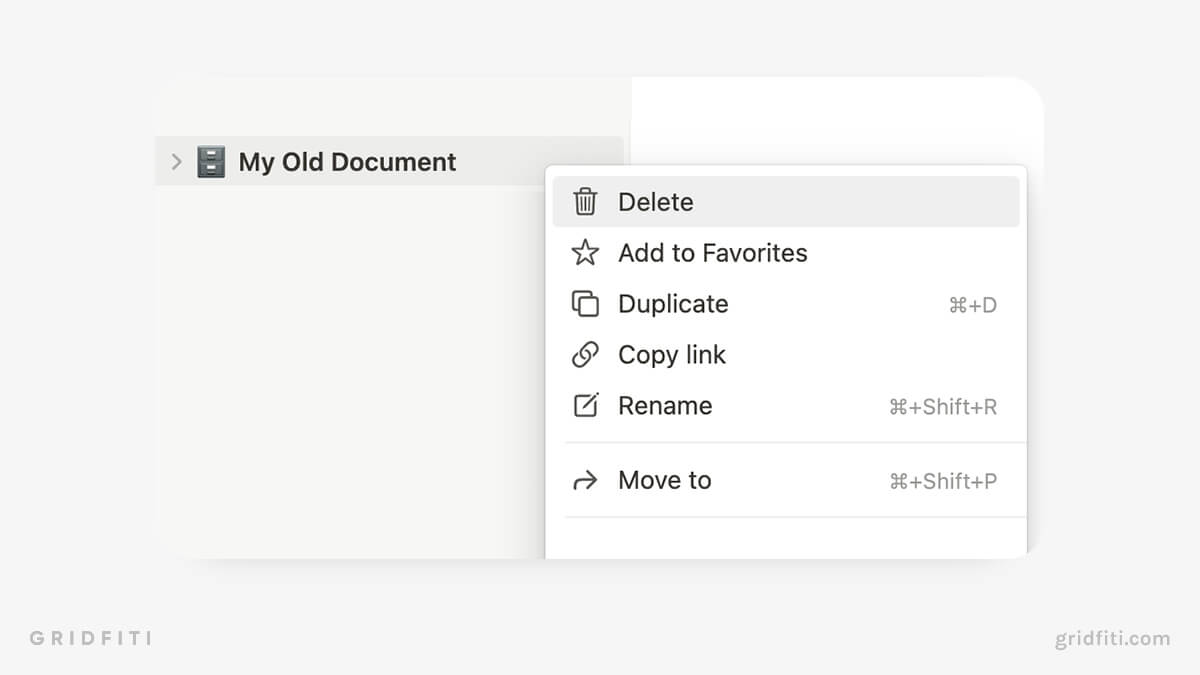
That wraps up our complete guide on making Notion faster! Are you finding Notion slow? Got any tips or tricks up your sleeve that we didn’t cover here? Share ‘em in the comments below!
Gridfiti is supported by its audience – when you buy something using the retail links in our posts, we may earn a small commission at no additional cost to you. Read more about our affiliate disclaimer.
